The strength of any lasting marriage is built upon trust—a silent pact to believe in and stand by each other through life’s challenges. But what happens when that trust falters, when one partner’s word is measured against the claims of an outsider and found lacking? For Mark, a 46-year-old professional, this painful reality came to life when a routine act of kindness at work snowballed into an accusation that threatened both his career and his marriage. The person he expected to be his unwavering defender instead became his harshest skeptic—his wife, Heather.
Mark had done nothing more than extend a helping hand to a new colleague, Sarah, guiding her through workplace protocols as part of his responsibilities. What started as simple mentorship took a distressing turn, culminating in a baseless accusation of misconduct that landed him in an HR investigation. More devastating than the professional fallout, however, was Heather’s immediate doubt, her willingness to entertain the worst without hesitation.
Now, caught in a storm of misplaced blame and betrayal, Mark finds himself questioning the stability of his 18-year marriage, struggling to reconcile the love he thought was unwavering with the painful reality of mistrust.

‘AITAH for resenting my wife for not believing my side of story?’
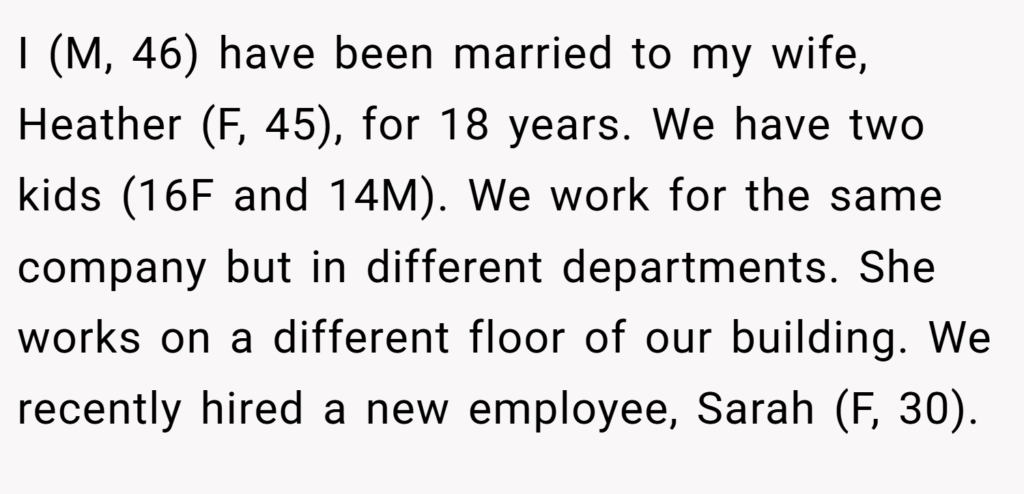
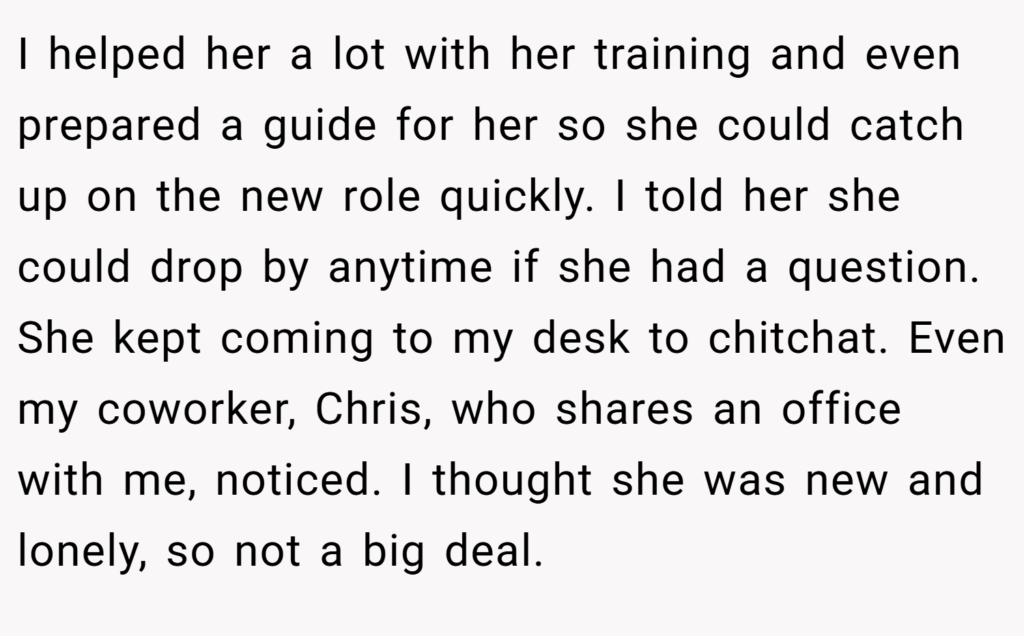
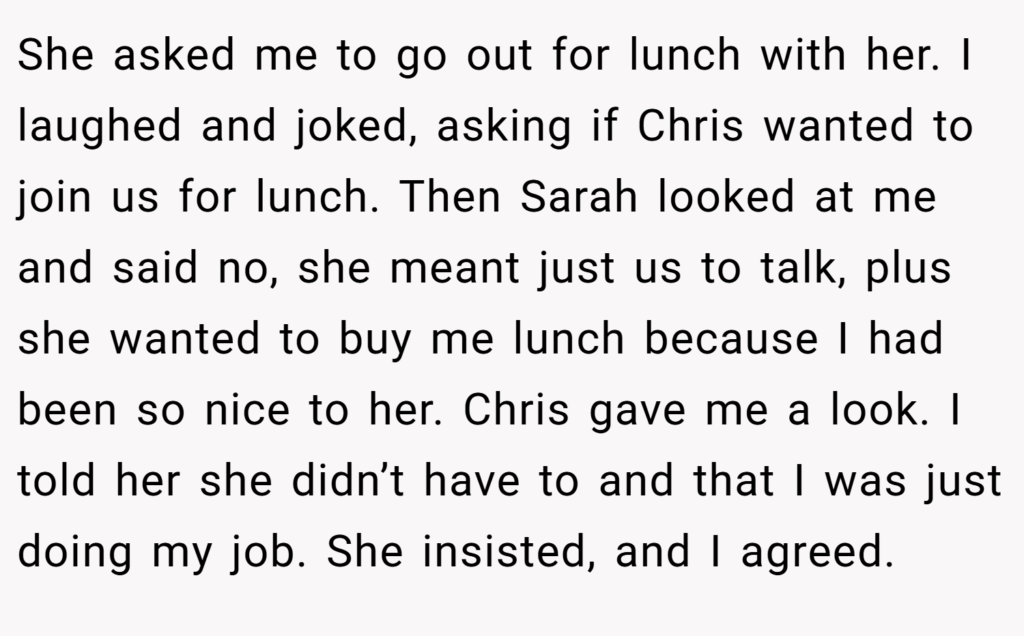
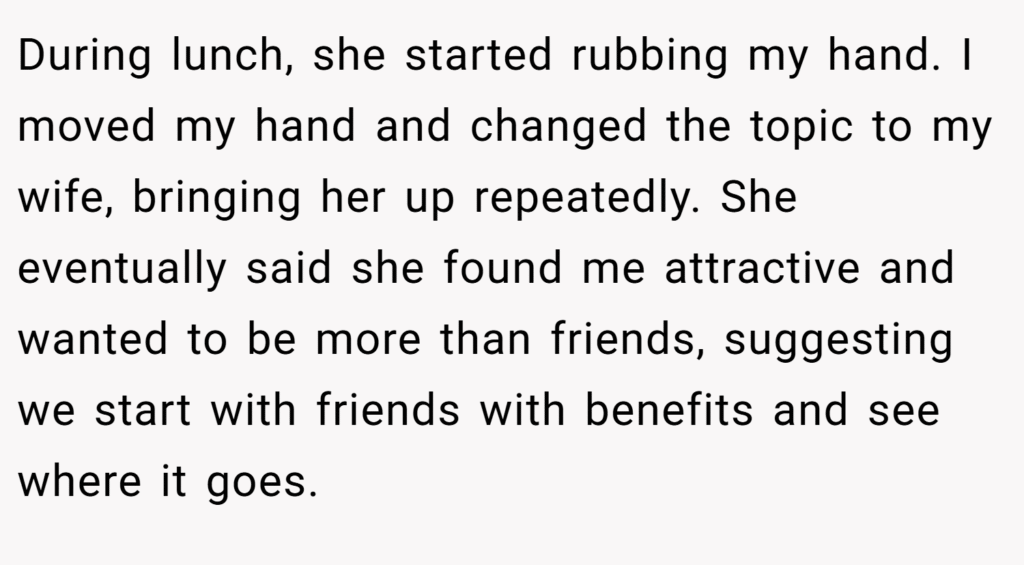
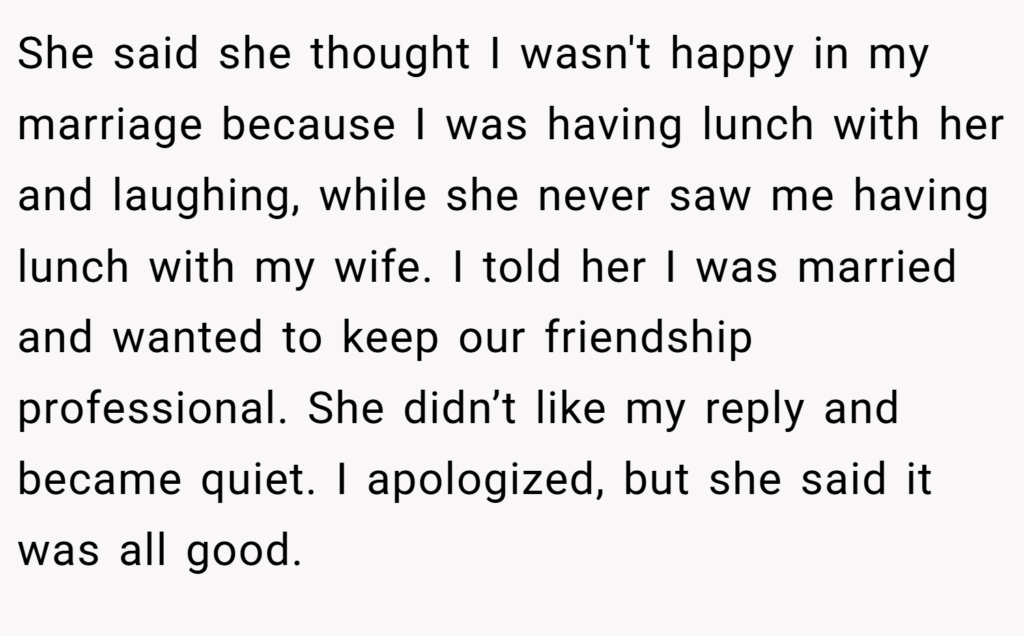
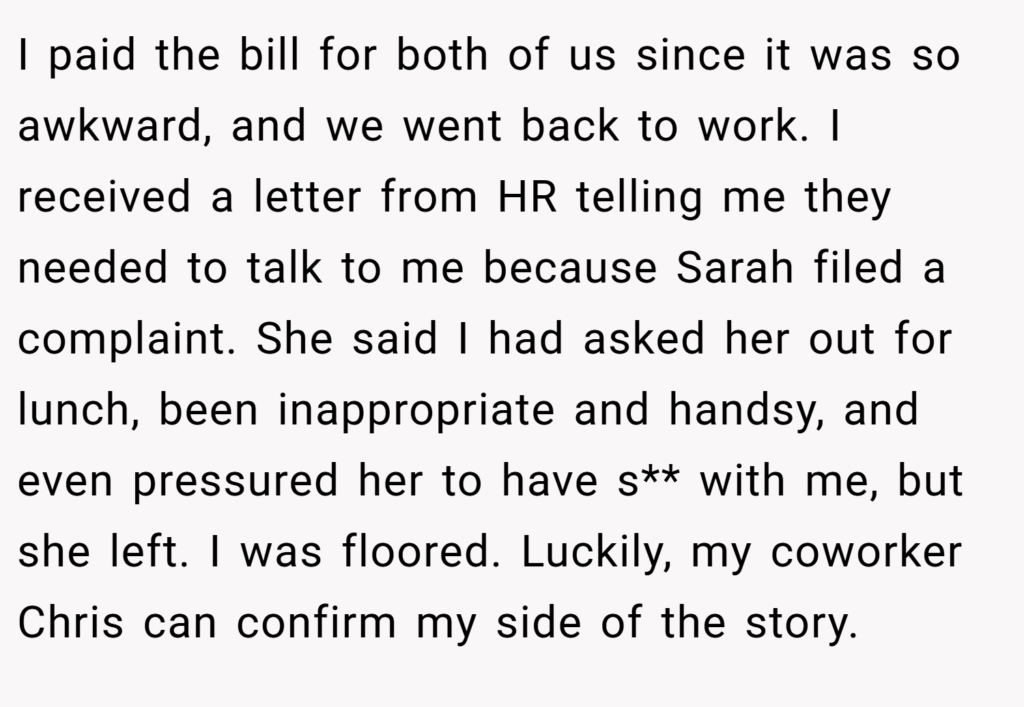
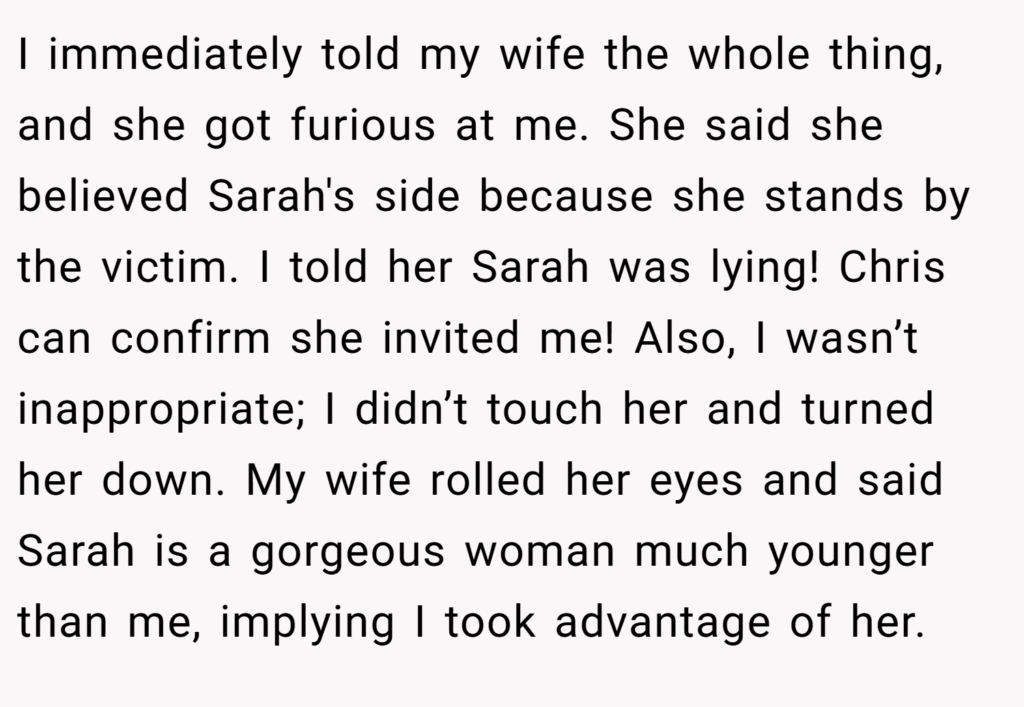
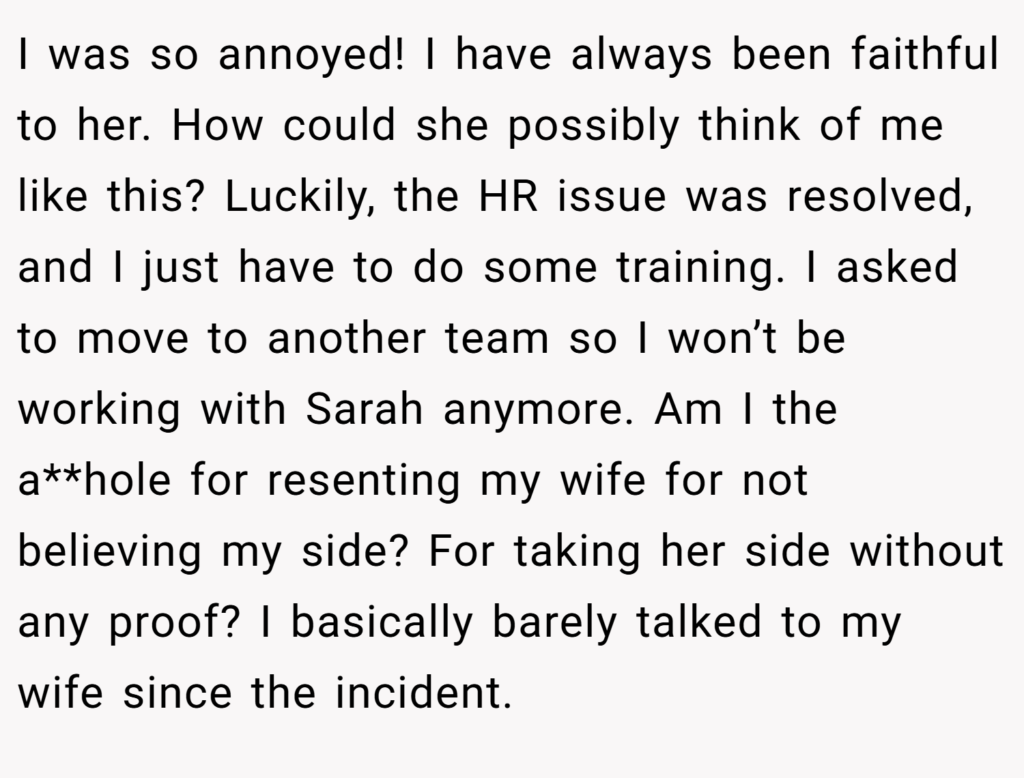
Trust is the cornerstone of a strong marriage, offering both security and mutual respect. When that trust is shaken or called into question, it can lead to emotional turmoil and weaken the foundation of the relationship. In Mark’s case, Heather’s immediate willingness to believe a stranger over her husband of 18 years raises troubling concerns about the strength of their bond. This situation serves as a powerful example of how external conflicts can expose deeper, unresolved issues within a partnership.
Heather’s choice to side with Sarah, driven by the belief in supporting victims, is understandable from a broader societal perspective. However, within the boundaries of marriage, loyalty and trust should extend first to one’s partner—unless clear evidence suggests otherwise. By disregarding Mark’s account and entertaining the notion that he may have acted inappropriately due to Sarah’s youth and attractiveness, Heather reveals a possible underlying lack of faith in his character and fidelity, despite years of commitment.
Dr. John Gottman, a well-known relationship expert and author of The Seven Principles for Making Marriage Work, emphasizes that trust within a marriage is built through consistent positive interactions and a deep belief in each other’s integrity. He stresses the importance of “turning towards” one’s partner in moments of conflict, offering reassurance and understanding. Heather’s immediate dismissal of Mark’s perspective, while embracing Sarah’s accusation, suggests a breakdown in this fundamental dynamic.
HR’s resolution—offering training rather than issuing disciplinary action—indicates potential inconsistencies in Sarah’s claims or an acknowledgment of Mark’s version of events. Yet Heather’s continued skepticism, even after this outcome, underscores the underlying communication and trust issues between her and Mark. Moving forward, an open and honest discussion about their perspectives, concerns, and expectations is essential. Couples counseling could provide a structured environment to unpack these tensions and help rebuild the trust that has been damaged.
Without addressing these lingering doubts, Mark’s feelings of resentment are likely to deepen, further straining their marriage. Restoring trust requires genuine dialogue, empathy, and a willingness to reaffirm their commitment to one another.


